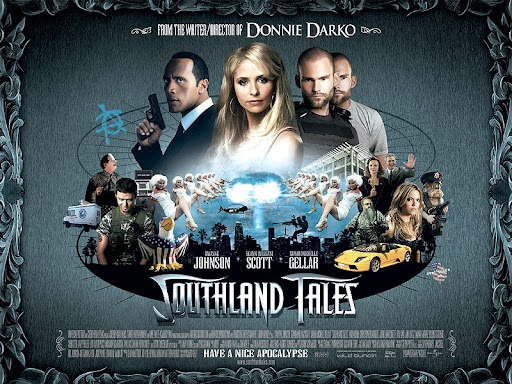Randy Newman and the Fall of the American Empire
 Randy Newman might be surprised to see himself mentioned on a progressive spirituality blog. In his five decades of making music that is alternately brilliantly satirical and elegant (and sometimes both), he hasn't often smiled on religion or religious people. In spite of his skepticism about spirituality, he also has written some of the most beautiful love songs I've ever heard, and many of these are shot through with regret for his past mistakes.
Randy Newman might be surprised to see himself mentioned on a progressive spirituality blog. In his five decades of making music that is alternately brilliantly satirical and elegant (and sometimes both), he hasn't often smiled on religion or religious people. In spite of his skepticism about spirituality, he also has written some of the most beautiful love songs I've ever heard, and many of these are shot through with regret for his past mistakes.
The title song of his new record, Harps and Angels, sees him looking forward with a combination of reluctance and mystery to the prospect of his own death. At 64, he realizes that his time is short, and if the title song is to be believed, he may have come around to the idea that "there really is an afterlife." But the heart of the album is a quintet of songs in which Newman addresses the political, even spiritual landscape of the U.S. In quick succession, he names what ails the nation ("Y'all have lost faith in yourselves"), reminds listeners that the dream of "America" was built on the idea that everyone could have "a piece of the pie" (although few seem to care about current inequalities, says Randy, except protest singers), and makes some amusing (and provocative) assertions about just how to change things. The most impressive song on the album is a political tract. "Just a Few Words in Defense of our Country" speaks what is so often considered unspeakable in polite conversation -- the fact that we are living through a period in which the global political order we have known since the second World War is coming to an end. The song ends on a bleak note, with Newman bidding farewell on behalf of a U.S. that needs to relearn its place in a new international structure. He may be granted easy passage to say such a thing -- he's functioning much the same way as a medieval court jester, telling the king what he doesn't want to hear but wrapping it up in biting humour.
From my (hopefully) humbler position as an outside observer of the U.S., I think Newman is half right. The global order that we have known is clearly diminishing, and new relationships need to be negotiated. The fact that there will soon be a new U.S. president offers an opportunity for an energized and thoughtful approach. There will be very few people in Europe sorry to see President Bush leave office, and while international adulation for Barack Obama is obvious, there is also a recognition outside the U.S. that John McCain would at least try to rebuild the vastly diminished standing of the country if he is elected in November.
I can imagine the legitimate criticism for an Irish guy suggesting that the American empire is falling, and I would counter this by saying that I love the U.S. so much that I'm moving there next week (if you'll have me). I still see hope in the idea of the values that the U.S. at its best represents. Just for starters, there's a pioneering spirit, hospitality and kindness, the creative impetus, and a positive attitude about the future (serious theologians would call that something like "eschatological hope," I suppose). But I am also aware that limiting such hope to one nation's idea of itself has pretty tragic historical antecedents. I prefer to think in terms of the distinctive gifts and goals of a nation, and how they interact with those of the rest of the world. The U.S. has something special, which in recent times has been mislaid or perhaps even misappropriated by leaders who seem not to understand (or not to want to understand) that we are all in this together. Newman may well be right in asserting that the empire as we know it is falling, but answering the question of what will replace it is a task not just for politicians or provocative artists but for everyone who takes the common good seriously.



